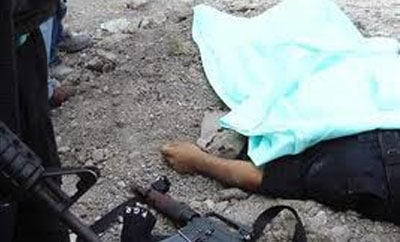Human Rights Watch’s World Report 2013 paints a grim picture of the state of human rights in Mexico, detailing widespread abuses committed by security forces in the fight against organized crime and a pervasive climate of impunity.
The chapter on Mexico reports that military abuses — including torture, disappearances, and killings — are widespread. Between January 2007 and mid-November 2012, Mexico’s National Human Rights Commission (CNDH) received reports of 7,350 human rights abuses by the armed forces. Despite the Supreme Court’s historic ruling in August 2012 that the Military Code of Justices’ claim of jurisdiction over human rights cases was unconstitutional, military personnel continue to be prosecuted in military courts, where very few investigations into criminal wrongdoing end in sentencing.
As the report details, despite the major judicial overhaul passed in 2008, Mexico’s criminal justice system remains hampered by corruption, inadequate resources, and state resistance to implementation of the reforms. The report also expresses concern over the use of the provision of “arraigo,” which allows prosecutors to hold suspects for up to 80 days before charging them with a crime.
The report notes no improvement in Mexico’s overburdened, underfunded prison system, noting that according to the National Human Rights Commission an estimated 60 percent of prisons are controlled by organized crime.
Human rights defenders and journalists, particularly those who report on drug trafficking or abuses by security forces, continued to face harassment and violence in 2012. Although Mexico passed a constitutional amendment in June 2012 that makes attacks against journalists a federal crime, lack of investigation into crimes against members of the press has created a climate of self-censorship and impunity.
The report also highlights the dangers faced by the hundreds of thousands of migrants who pass through Mexico each year and the failure of the authorities to take adequate steps to protect them. According to the CNDH, cited in the report, an estimated 22,000 migrants are kidnapped each year, often by organized crime groups who demand ransom payments from relatives.
InSight Crime Analysis
The assessment covers similar ground to last year’s report and the damning 2011 report, “Neither Rights Nor Security,” on former President Felipe Calderon’s anti-crime policies. The apparent lack of progress in Mexico in tackling these human rights abuses serves to highlight the breadth of the challenges facing the country, when it comes to consolidating security.
It remains to be seen what measures, if any, new President Enrique Peña Nieto will take to address the major problems outlined in the report. So far his government has taken one small step: ending the practice of parading organized crime suspects in front of the media, which failed to meet international human rights standards on treatments of detainees.
However, for all of Peña Nieto’s talk of breaking with his predecessor’s “reactionary” policies and emphasizing reducing violence, under the new president’s security strategy the military will remain on the streets for the forseeable future, raising fears that the human rights abuses described above will continue to occur.

